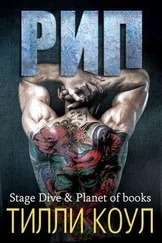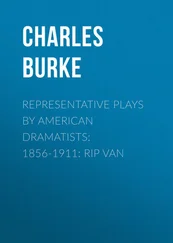‘Thank you.’ She read through the short CVs of the eleven staff, noticing with surprise that he had included himself, and with interest that his foreign experience was extensive. ‘Is there anyone you think I should be focusing on?’
‘No, not at this stage. As far as I can see everyone here is completely above board. Of course, you wouldn’t be here if I didn’t have some suspicions but they aren’t directed towards anyone in particular. If there is some sort of a leak here, someone must be monitoring the precise make-up of each of our cargoes and passing it on.’
‘Who has access to that information?’
‘In theory, just the accountant and myself. But in practice, who knows? We don’t exactly have top-level security here. We are a fairly friendly team – just the eleven of us. Let’s hope you’ll make it a Lucky Dozen.’
He paused, looking thoughtful, then said, ‘I’m sure you know your business, Maria. I gather you’ve done undercover work before. But the fact that we are so small here means you’re going to have to go carefully if you are not to draw unwanted attention to yourself. You’re vastly overqualified for this job so you’ll need to downplay your credentials. Otherwise people are going to wonder why you’re here.’
Maria nodded and said, ‘My cover story is that I’ve been living and working in England for some years. I wanted to come back home to Athens because a long relationship in London suddenly broke up. And I was getting sick of the ethics of the commercial world – or lack of ethics – and now want to do something more worthwhile.’
‘That will do fine.’ Berger smiled and got up. ‘I’ll walk you round the office and introduce you. Then we’ll go and have some lunch.’
They walked back down the floor’s one corridor, passing an empty office on the left. Berger pointed through the doorway. ‘That’s where Katherine sits. She’ll come to lunch with us if she’s back in time. She’s not in on your real purpose here – I decided to keep that between the two of us.’
Further along they came into a high-ceilinged room where two Greek girls were sitting at desks in front of computer screens. Berger introduced them as Anastasia and Falana, general assistants who did everything from typing to wrapping parcels. They were little more than teenagers, and could have been sisters with their long, dark hair and big doe eyes. When Berger left to take a phone call, the girls started giggling.
‘What’s so funny?’ asked Maria.
Falana giggled even more while Anastasia explained,‘We were admiring your dress. But Falana’s too shy to ask where you bought it.’
Maria glanced down at the cherry-coloured cotton frock, which she’d found in a little Covent Garden boutique the previous year. ‘I bought it in London.’
‘London?’ exclaimed Falana, her eyes widening. ‘You have been to London?’ For all the wonder in her voice, Maria might have said she’d been to Mars.
Anastasia explained,‘We both love London. I mean, the idea of London. Neither of us has been.’
‘I used to live there. My mother is English.’
The girls were very impressed by this and soon Maria found herself chatting with them about Topshop and fashion, and clubbing, and Athens nightlife – all as if she were nineteen again. When Berger returned, the Greek girls looked disappointed, though both of them brightened when he explained Maria would be starting work the following day.
‘You’ve made a hit with them, I see,’ he said, as they walked down the corridor.
‘They’ve forgotten more about pop culture than I ever knew.’
Berger introduced her to the rest of the staff, including a Frenchwoman in her forties called Claude, who travelled much of the time to the crisis-stricken areas where UCSO aid was sent. They walked into another room that led off the large central office. Here Berger left her with the chief accountant, Alex Limonides.
Limonides must have been at least sixty. He was gaunt, with wrinkled walnut skin and receding hair, its thin strands carefully brushed over his balding scalp. His pale grey suit, far too big for him, was almost falling off his thin shoulders. His breath smelled of sweet tobacco. As they sat down together to look at the books, he offered Maria a filterless cigarette the colour of dried corn; when she refused, he politely put the packet away without taking one for himself.
There was nothing very complicated in the UCSO accounting systems: the overheads of the office itself were straightforward, mainly rent and salaries; the details of the cash in from various sources, and the outgoings including any purchases of aid made locally and payments to the shipping brokers, were all recorded in the ledgers. Any accruals of cash were transferred to the London office when they hit £25,000. It was all very easy to understand and there seemed little opportunity for petty theft, much less big-time larceny. But Maria reminded herself that it was information, not money, which someone was stealing.
Limonides showed her how the cargo manifests were compiled, then confirmed by the shipping agency they used. Interestingly, this was still done on paper – long foolscap sheets more suggestive of a Dickensian counting office than a modern international charity. The lists were kept under lock and key in the drawer of Limonides’ wooden desk. About as secure as an ice-cream wrapper, Maria thought to herself. Besides Limonides, only Berger and an accountant in the London office would have known the full contents of a shipment. No new ones were scheduled for the next six weeks; that should give her ample time to familiarise herself with office procedures and discover if anyone had been snooping around.
At one point they were interrupted by a phone call. The elderly Greek picked up the receiver and listened impatiently. Then he replied, in disapproving tones, saying that he would certainly pay the invoice in question, as always, but only within the thirty days of their standard terms. Xenides, he declared, must know this by now, and it was not the business of UCSO to advance funds to other organisations. With a terse goodbye, he put the phone down and gave a weary sigh, then resumed his briefing of Maria.
After twenty minutes more, she felt that there was nothing she didn’t know about UCSO’s financial systems, and was grateful to be rescued by Berger and taken for lunch. They walked a short distance down the baking hot street to a taverna, where they sat under an enormous mahogany ceiling fan that revolved like a slow helicopter, just stirring the air.
‘First impressions?’ he asked as the waiter brought a basket of pitta bread and large glasses of ice-cold water with lemon.
‘Everyone was very welcoming. It’s a friendly atmosphere.’
‘It needs to be – the office is too small to allow for any friction. The only politics are about the venue for the Christmas lunch. Falana always wants to go somewhere trendy.’
‘They’re funny girls.’
Berger nodded with a smile. ‘What did you make of Mr Limonides?’
Maria laughed. ‘He’s very old school, and quite charming. When I said I didn’t smoke, he wouldn’t have one himself.’
‘But as an accountant…?’
‘He’s cautious and precise – just what you want. I didn’t see anything that any auditor could even begin to query. The only unusual item I noticed was Sundries in the P &L. Usually, it’s a trivial amount – we used to call it “toothpaste money”. But yours is very large – over ten thousand sterling. Why?’
For the first time, Berger hesitated; he seemed almost embarrassed. Then he explained: in some of the countries receiving UCSO aid, it was necessary to make informal payments (he neatly avoided the word ‘bribe’) to ensure that the aid was delivered to the people who needed it. Otherwise, he went on, anything from Range Rovers to one-hundred-pound bags of flour could find their way on to the black market, or into the garages and larders of Government Ministers. ‘It’s not admirable, or ethical, or something I’d want to appear in the press. But ultimately, it’s necessary.’
Читать дальше












